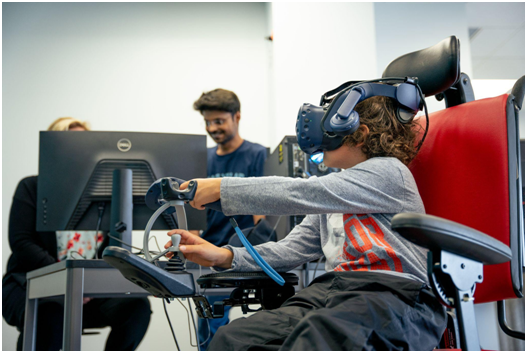3-minute read
Long gone are the days when it was uncool to be a tech nerd and be interested in tech software. Now we rely on technology for almost everything in our daily lives to the point where our society would collapse without it. Virtual Reality (VR) is a technology that has started to slink into our everyday lives. The question is how and when we will see VR emerge into the mainstream population. What does that mean for businesses, government, and healthcare? My hope is to see VR in the mainstream parts of healthcare, especially in pediatric hospitals.
COVID-19 and VR
VR has fast-tracked since the start of COVID-19 thanks to the increased need for telehealth. The announcement of the metaverse has only pushed this momentum forward. VR is now becoming a trend we see that helps us utilize different aspects of our lives to make them easier and safer. This is one of the reasons I am passionate about the work we are doing at MARS VR Lab where we are creating tools for clinicians and doctors to use that will make rehabilitation safer and easier for children in powered wheelchairs. Obviously, COVID-19 has had an impact, however, one silver lining is that it has pushed us forward as a whole to try and trust remote services would have never considered using.
Before COVID-19 many people chose to go to their doctor’s appointments in person. Now we see the convince and ease in doing healthcare online in the comfort of our own homes when it is applicable. Telehealth is helping people, especially people living in rural areas have better access to healthcare. It really is an exciting time to see how VR can be applied to enhance and reinvent remote health services.

